Our Why
Families who have children with disabilities face an inordinate number of challenges that range from worrying about their child’s wellbeing to managing insurance benefits to shoehorning their child’s numerous appointments into their already busy schedules. These logistical challenges are amplified in single caregiver households or in households where both caregivers work outside of the home. In Washington state, children who have disabilities and who are between the ages of birth and three can qualify and participate in the Early Support for Infants and Toddlers (ESIT) program which is a federally funded program through the Individuals with Disabilities Education Act (IDEA) that is administered through the state. The ESIT program offers many services for families, but one of the most significant services that it offers is that children are to receive therapy services in their natural setting. The natural setting for young children is often their home or at their childcare center. Children ages birth through three, who are enrolled in ESIT, go to a daycare center, and receive therapy services (such as physical therapy, speech therapy, feeding therapy, or occupational therapy), are able to receive their therapy services in their daycare setting. The ESIT program pays for the travel time and mileage for pediatric therapists to see children either at their home or at their childcare center.
Children age out of the ESIT program when they turn three. At age three, the child’s local public school district assumes responsibility for making sure that children’s individual developmental needs are met. School districts assess children’s skills, and based on their individual skills, an Individualized Education Program (IEP) is written for the child. An IEP can include services such as school district preschool and therapy services offered by the school district.
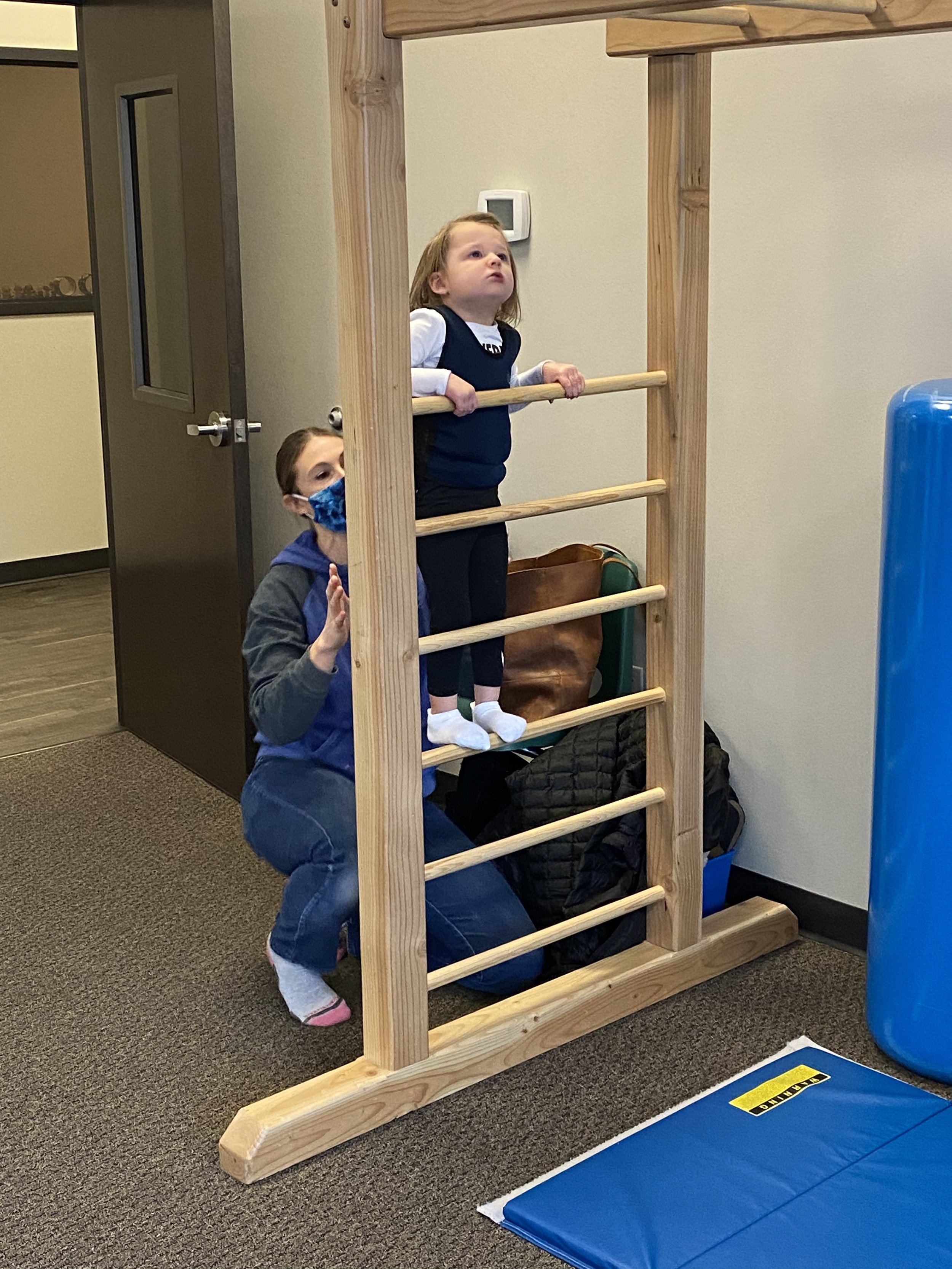


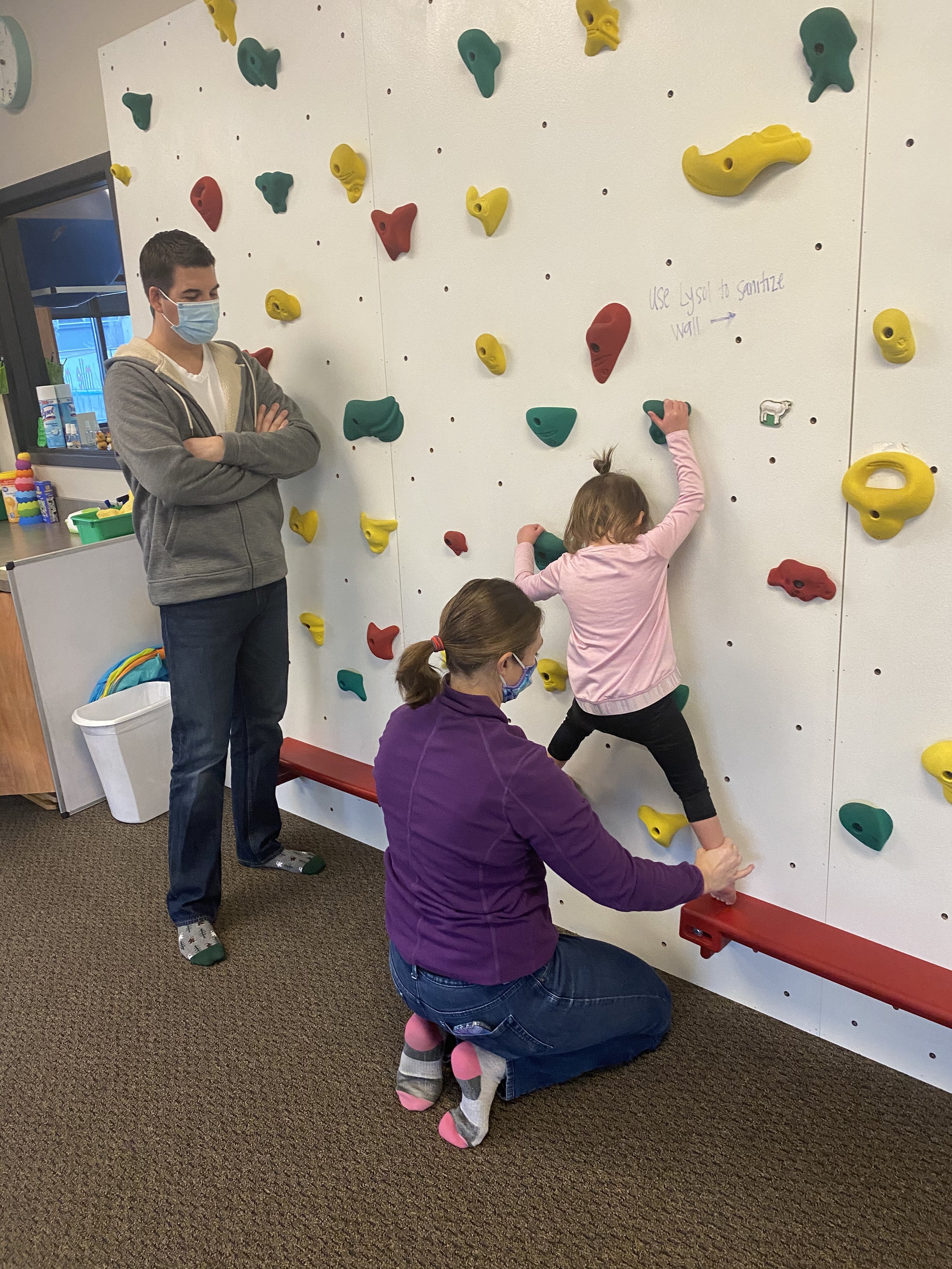

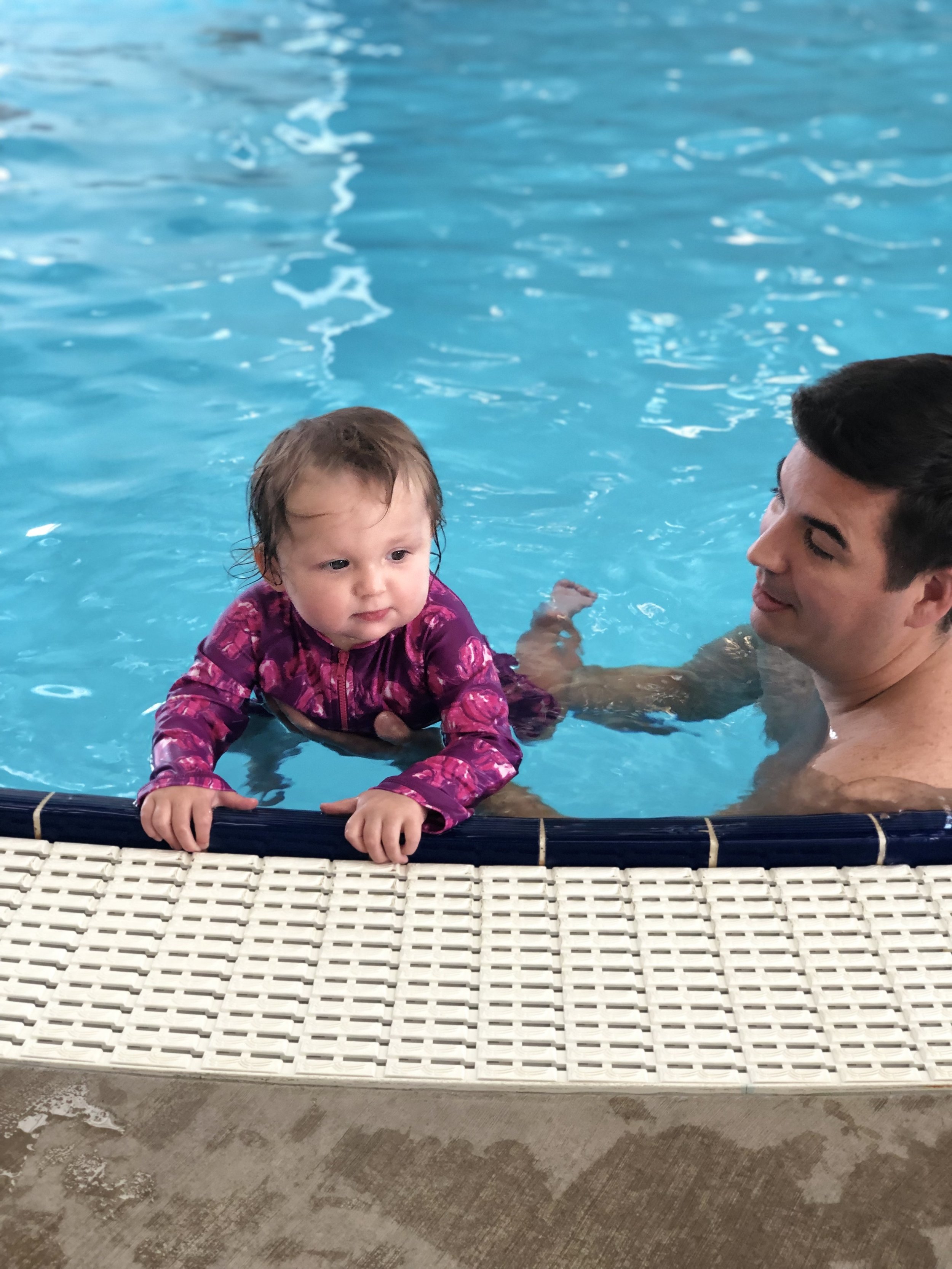

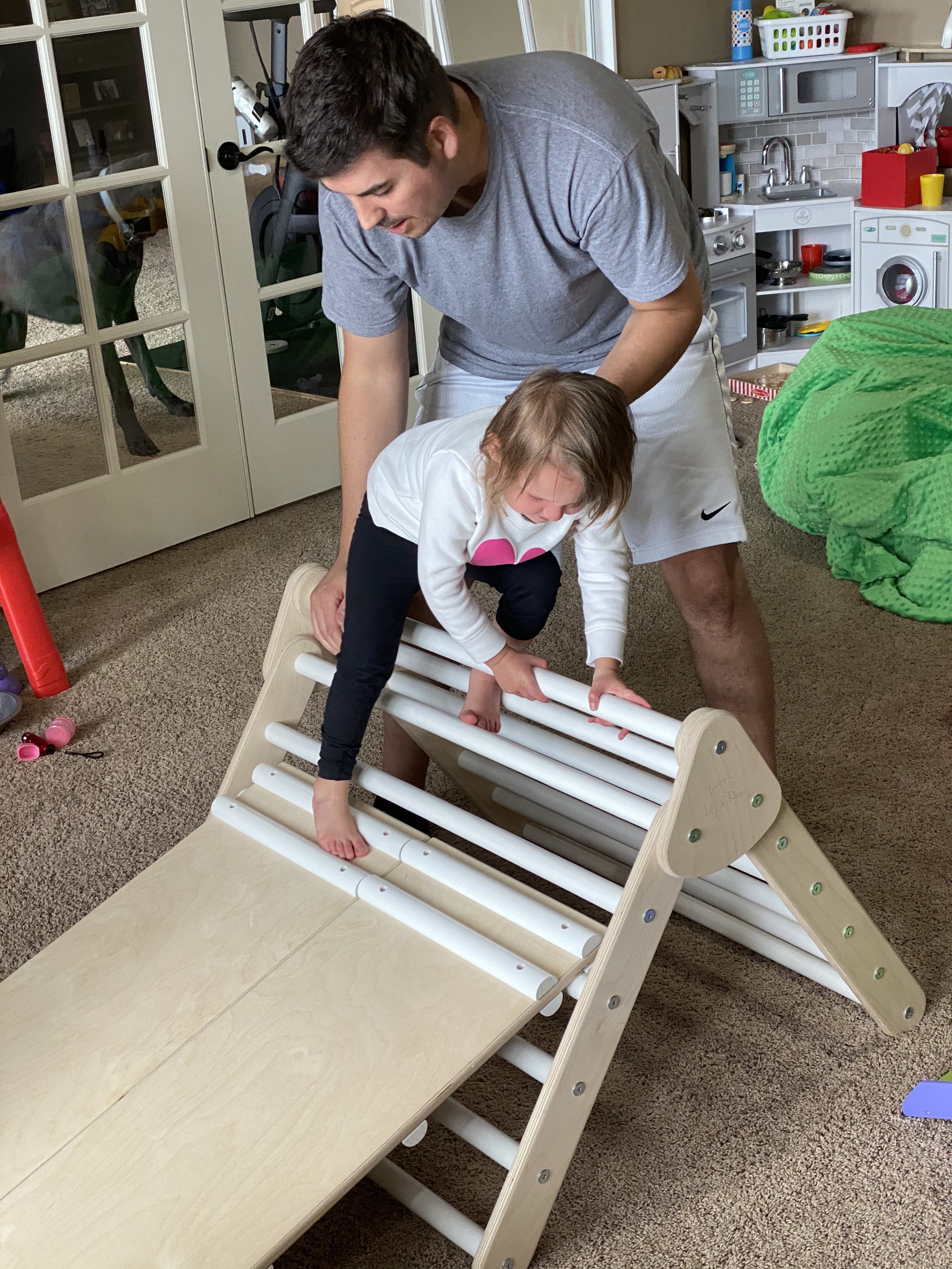

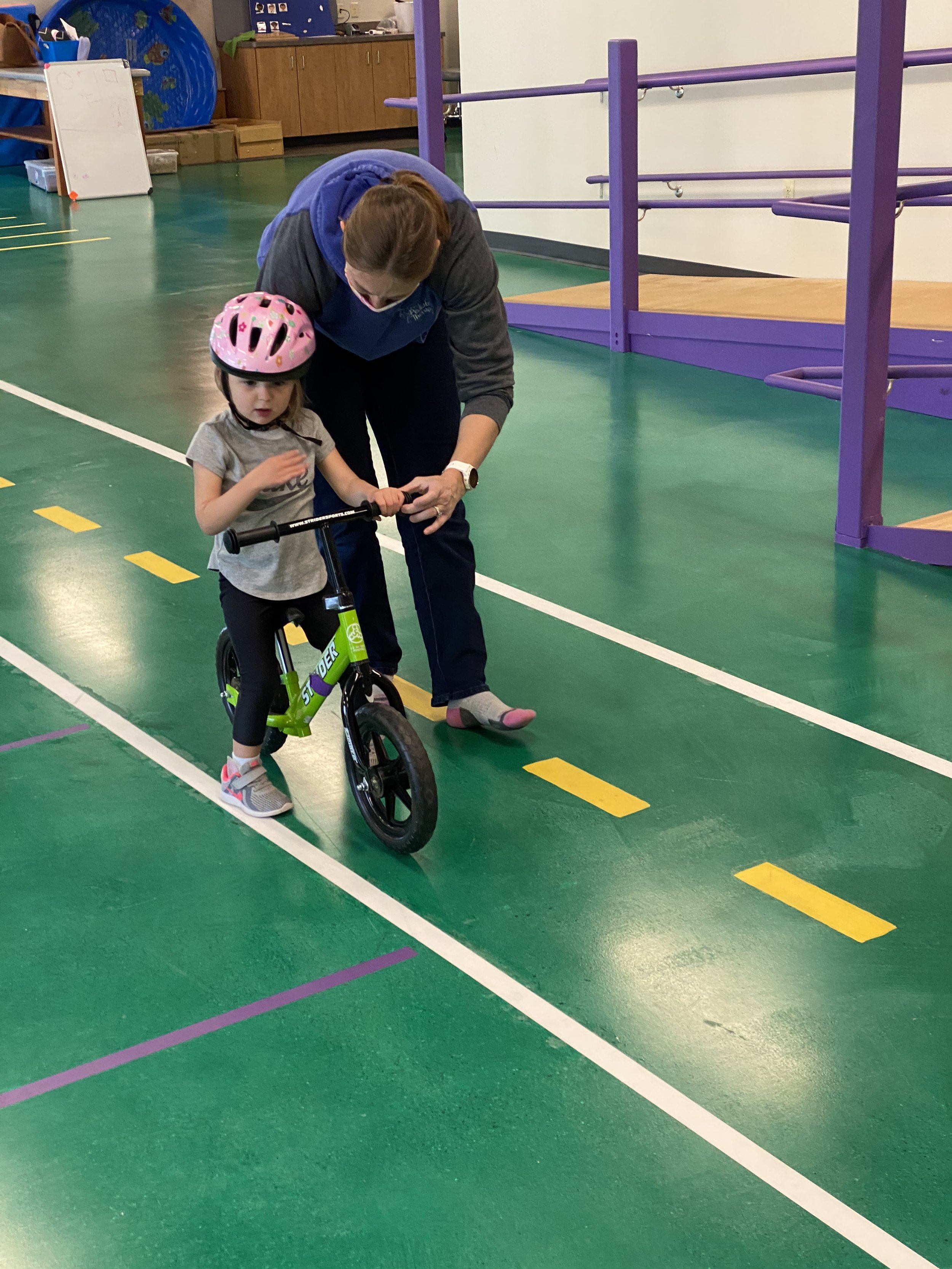


Based on Julie’s background in education, she knew that the therapy services that children receive through the school district are focused on making a child successful in the classroom. Given that the classroom does not require as many skills as an overall, robust life, Julie knew that there would be skills, such as learning how to ride a bike, that likely would not be addressed through school district therapy. Additionally, the school district Rosalie would have attended in Spokane did not offer full day, every day, preschool children. It offered part day preschool that occurred several days a week.
When Rosalie aged out of ESIT and transitioned to the public school setting she was offered part day preschool several days a week and 20 minutes of physical therapy a week; despite receiving an hour of physical therapy, an hour of occupational therapy, and 30 minutes of speech therapy each week in the private setting. Had Rosalie only received school district therapy she would have received 520 fewer therapy minutes each month than she did in private therapy.



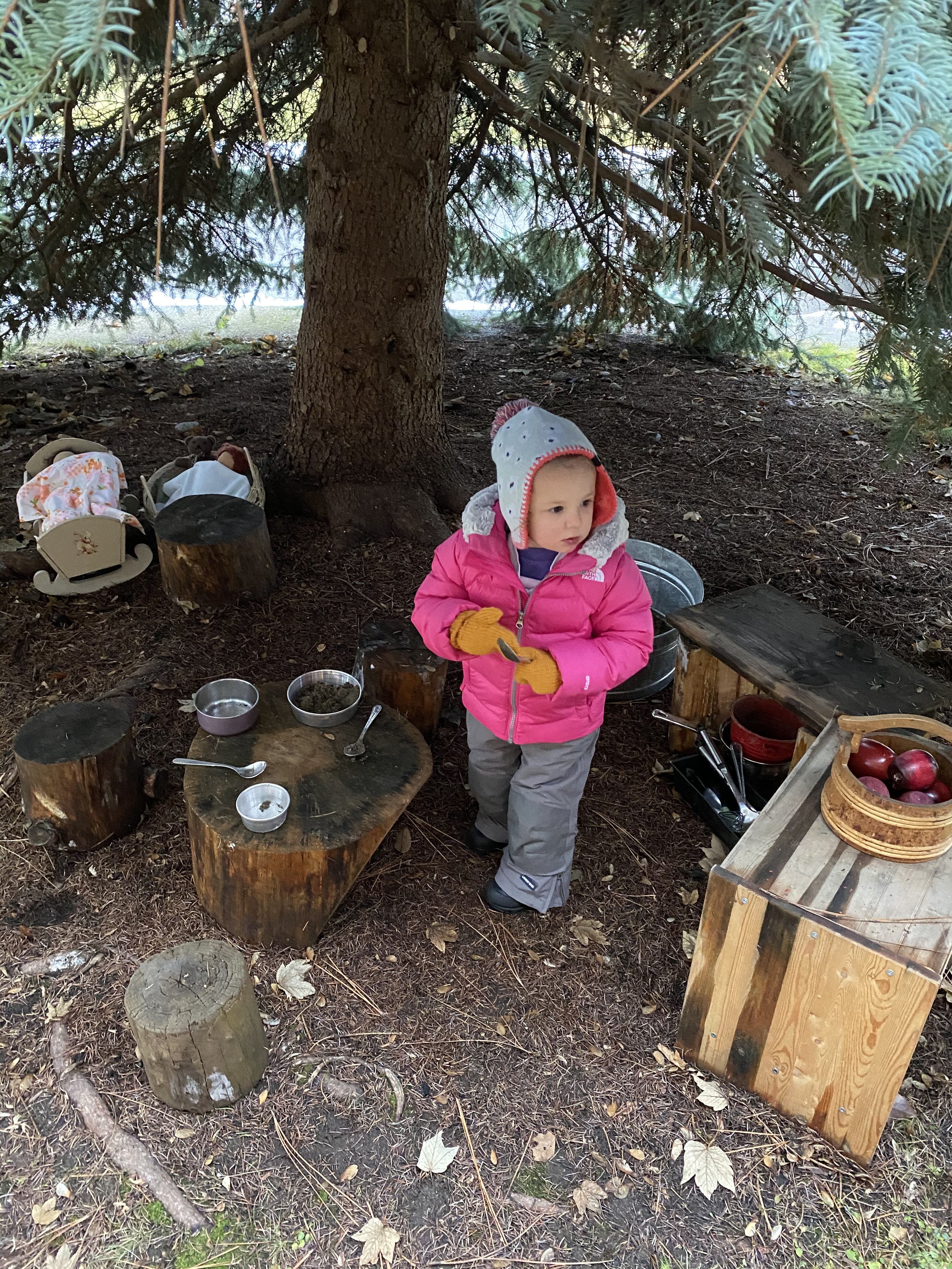




Julie and Doug knew that they wanted a play based preschool option for Rosalie. They also wanted her to continue to maximize the amount of therapy services that she could receive. Julie looked all over Spokane and there were no full day preschool options for Rosalie. Every preschool that Julie found required the child to be potty trained, which Rosalie, like many developmentally disabled three year olds, was not potty trained. Ultimately, Julie and Doug enrolled Rosalie in the part time program at Windsong School and it was an excellent fit for her; however, the part time nature of the program did not allow Julie to easily return to work.
Julie and Doug know that many families cannot afford for one caregiver to reduce their hours or transition to a full time caregiver for their child(ren) with disabilities, and they believe offering an inclusive, full day therapeutic child care center is a vital service for families in Spokane.
Additionally, Julie and Doug believe all families should have a choice in their child’s child care experience. Families of children who have disabilities should not feel forced to choose between the preschool option that their local school district offers or in-home care. All families should be able to choose the child care option that is the best fit for their family.
Further, if families did find a child care center that would accept their toddler with a disability, the toddler would still need to receive his or her therapy services, which means that families could potentially be going to three or more therapy appointments in the evening each week. Having time as a family is as vitally important to the development of children as are the therapy appointments. The goal is to create a scenario where children are able to get the vast majority of their therapy services while in the child care setting so that families are able to enjoy their time together in the evenings, and the primary fundraising mission of this foundation will be to earn funds to found an inclusive, therapeutic, full day childcare center in Spokane, which we will call Birdie’s Nest.




